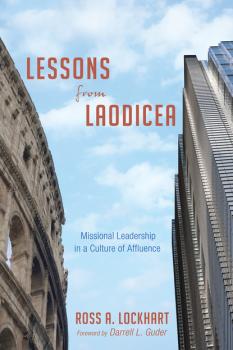ТОП просматриваемых книг сайта:
Ross A. Lockhart
Список книг автора Ross A. LockhartАннотация
Somewhere in the mists of time, between history and hagiography, stands the great evangelist and missionary St. Patrick. Raised a «cultural Christian,» Patrick's encounter with God during captivity in Ireland transformed his life and the history of a people. Freedom from slavery, and a return home to Britain, produced the divine summons–Vox Hibernia–to return to Ireland and the place of captivity in order to witness to the gospel of Jesus Christ. Christian witness in twenty-first-century Vancouver, Seattle, or Portland is a world away from fifth-century Armagh, Slane, or Cashel. Yet, the great evangelist to pre-Christian peoples of Hibernia has much to teach us as we seek to engage our secular, post-Christian context. There is wisdom in the missional leadership of the one we call St. Patrick that goes well beyond tales of snakes and shamrocks. How might Patrick's mission experience with pre-Christian peoples direct our contemporary missional encounter with post-Christian peoples? Come explore the story of the shepherd slave turned shepherd of souls and discover that there is power still in the legacy of Patrick, when yoked with the Spirit-filled presence and purpose of the risen Christ.
Аннотация
"I'm rich and I don't need a thing," bragged the early Christians in the big city of Laodicea. The Apostle John, however, saw their affluence and arrogance through a theological lens. He declared them to be bankrupt, «lukewarm Christians» whom God would gladly gargle and spit out. Today, the mainline church in the West finds itself in a dominant culture of Laodicean affluence, where even faith is a commodity to be consumed. While the gospel spreads and thrives in the global South and East, the Western mainline church looks longingly back at Christendom and forward in fear. As Christians living in a North American culture that highly prizes the unholy Trinity of individualism, consumerism, and secularism, we require a new kind of missional leadership to «pray» attention to what God is doing in the world around us. This book names the challenges and promises inherent in partnering with the Holy Spirit in order to offer missional leadership in a culture of affluence. It is about both living in Laodicea and leaving it behind. We are no longer in a Babylonian captivity but a Laodicean one. This work helps chart a course for Christians who long to let go of «country club religion» and instead belong to a community that helps equip missionary disciples, resistant to the dominant culture and resplendent in the love of our triune God.


